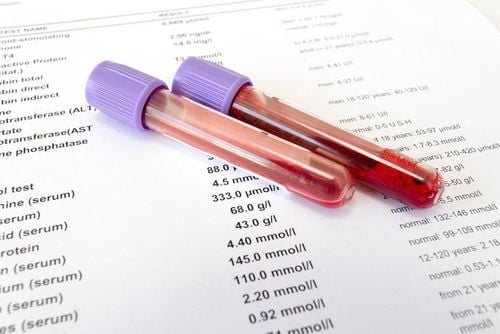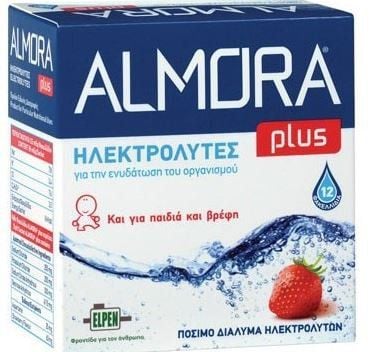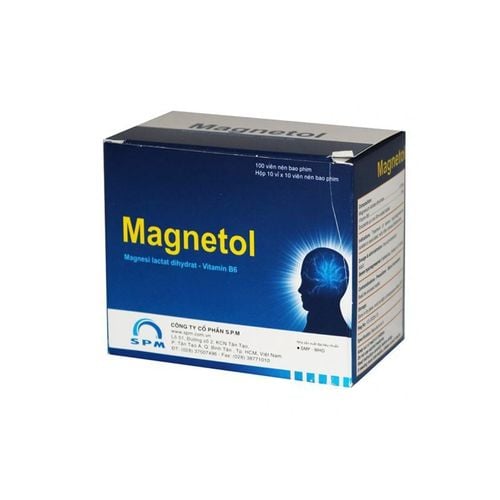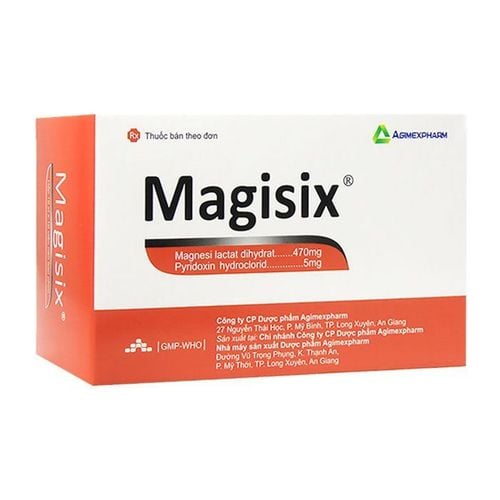This is an automatically translated article.
The article was consulted with Dr. Nguyen Thai Ngoc Chau - Neonatologist - Department of Pediatrics - Neonatology - Vinmec Phu Quoc International General Hospital.Children need all kinds of vitamins and minerals for proper growth and development, one of which is magnesium. With a lack of this mineral, your child can experience insomnia, lethargy, and muscle cramps, including many other health complications. So what is a reasonable magnesium supplement for children?
1. Why do children need magnesium in their diet?
Magnesium is one of the most important minerals for overall health in children as well as adults. Not only does it keep bones strong and heart rate steady, support the immune system, and help maintain muscle and nerve function, but magnesium also has lesser-known effects below:Helps children sleep better Provides energy for children Helps stabilize blood sugar and insulin in the body Helps form DNA Benefits children's hormonal health Helps maintain blood pressure and ensures good heart health

Magie có tác dụng duy trì huyết áp cho trẻ và đảm bảo sức khỏe tim mạch tốt
2. What is the daily magnesium requirement for a child?
Infants up to 6 months old may need 30mg Infants 7 to 12 months old may need 75 mg. Toddlers 1 to 3 years old may need 80mg. Children 4 to 8 years old may need 130 mg. Children 9 to 13 years old may need 240mg. Boys 14-18 years old may need 410mg and girls 14-18 years old may need 360mg. Children do not necessarily get enough magnesium in a day. Instead, set a goal of giving your child magnesium every few days or weeks.3. What is magnesium deficiency?

Thiếu magie có thể gây ra bệnh động kinh ở trẻ
Children with magnesium deficiency often appear more at the age of 3-7 months and more common when the child is 1-2 years old due to the inadequate nutrition provided by the parents. Most magnesium deficiency also occurs in young children who are anorexic, lazy to eat, leading to malnourished children. In addition, magnesium deficiency also causes a number of diseases such as: high blood pressure, metabolic cardiovascular disease, type 2 diabetes, epilepsy, nerve problems, intestinal diseases, insomnia, osteoporosis. ..
4. Signs of magnesium deficiency in children
Wondering if your child is getting enough magnesium? Here are some common symptoms in children with magnesium deficiencyChildren complain of blurred vision Children may have seizures or cross eyes Children may be confused, anxious, restless and stressed may have trouble sleeping or have trouble sleeping The child may have bone or tooth problems The child may have digestive problems and may also be constipated The child may have pain and soreness in different parts of the body Your child may have a heart rhythm disorder If your child has one or more of these symptoms, see your doctor.
5. How to overcome magnesium deficiency in children?

Bổ sung thực phẩm giàu magie trong chế độ ăn uống cho trẻ để khắc phục tình trạng thiếu magie
6. Magnesium-rich foods
Nuts, beans, whole grains, cocoa powder are the best choices. Green leafy vegetables also provide high levels of magnesium because the substances that give green color to the leaves contain a lot of minerals. The data for magnesium content in foods according to US nutritionists are as follows:1/2 cup whole grains: 93 mg 28g dry roasted cashews: 74 mg 1/4 cup oil-roasted peanuts: 63 mg 1 cup soy milk, unsweetened: 61 mg 1/2 cup Japanese soybeans (shelled and cooked): 50 mg 1 tablespoon almond butter: 45 mg 1/4 cup cooked spinach: 39 mg a packet of instant oatmeal: 36 mg 1/4 cup black beans: 30 mg 1 tablespoon fine peanut butter: 25 mg One slice of whole-wheat bread: 23 mg

Ngũ cốc nguyên hạt là thực phẩm giàu magie
Starch: Rice 14mg, bread 22mg, potatoes 30mg... Protein group : Meat 20-30mg, seafood 30-40mg, eggs 11mg, cow's milk16mg... Fiber group providing vitamins, minerals: banana 41mg, durian 32mg, spinach 94mg, , raisins 12mg... Fat: Sesame 350mg, peanut 185mg, white bean 170mg... Magnesium content in each food is only relative value, depending on size or different manufacturers. Note that nuts can cause suffocation for young children, so when processing you need to grind them finely. Your child can eat more or less depending on his age, taste and needs. You should estimate the balance of foods to provide optimal nutritional content for children.
Eliminate foods that do not contain magnesium:
Replace animal protein with vegetable protein Eliminate simple carbohydrates and foods high in sugar. Don't have too much milk Eliminate caffeine from your child's diet Limit high doses of vitamin D or avoid excessive sun exposure.
7. Is it safe to self-administer magnesium supplements for children?

Hãy tham khảo ý kiến của bác sĩ khi muốn cho con dùng thêm các chế phẩm bổ sung magie
In the form of magnesium oxide tablets: If your child is able to swallow tablets, the doctor may give them in tablet form. In the form of magnesium hydroxide tablets: Your child can chew or swallow these tablets. Or else you can crush or cut the tablets for your child's convenience. Liquid magnesium hydroxide: Very easy to use even for young children. But be careful not to mix the liquid supplement in your child's food as it can make the medicine less effective.
8. Safety measures to take when giving magnesium supplements to children
Always give the prescribed dose and do not give your child magnesium overdose as overdose can also lead to various health complications. If you are giving your child a magnesium supplement, it may interfere with the absorption of other medications your child may be taking such as phosphorus, iron or calcium supplements. Therefore, you should give your child magnesium supplements two hours before or after taking other medications.9. Side effects of too much magnesium supplements

Trẻ khó thở,thở gấp có thể là biểu hiện do bổ sung quá nhiều Magie
According to the recommendations of the Food and Nutrition Board of the American Institute of Medicine: The maximum level in a day that the body can accept with magnesium supplements is 65mg for ages 1-3 and 110mg for children from 4 to 8 years old.
Some signs that your child is getting too much magnesium:
The child may have watery diarrhea The child may feel extremely tired or weak The child may have swelling in the throat, lips, tongue or face The child may have trouble breathing , gasp or wheeze when breathing. Your child may develop hives or a skin rash. -Children may experience bloating, cramps, or abdominal pain If your child reports any of the above symptoms, you should call your doctor right away. Prolonged exposure may not lead to serious complications.
It can be seen that the magnesium needs of children are very necessary and important, requiring parents to be very careful when loading appropriate nutrition sources for children from the time they enter the weaning stage. Adequate and moderate magnesium intake is better than forcing magnesium overload, which can cause excess substances and digestive diseases in children. Observing children and finding that the child is growing up healthy, without any signs of health problems, means that the child has received the required amount of Magnesium every day.
Children in the period from 6 months to 3 years old are very susceptible to respiratory problems, respiratory infections, skin diseases and gastrointestinal infections... parents need special attention attention to the care and provision of adequate nutrition for children. It is necessary to add lysine, essential micro-minerals and vitamins such as zinc, chromium, selenium, B vitamins under the advice of a specialist.
For more nutritional knowledge and child care for each age, parents should regularly visit the website vimec.com and make an appointment with the leading doctors, pediatric and nutrition experts of the National General Hospital. Vinmec when needing advice on children's health.
References: babycenter.com, parenting.firstcry.com














